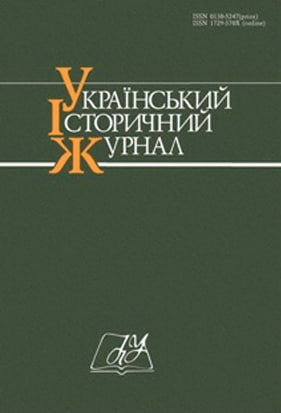Conformism and Nonconformism of the Creative Intelligentsia in Soviet Ukraine in the 1920s – 1930s: the Problem of Choice
DOI:
https://doi.org/10.15407/uhj2021.02.080Keywords:
intelligentsia, conformism, repressions, nonconformism, creativity, dissentAbstract
The purpose of the study is to analyze the socio-political conditions in which the creative intelligentsia worked in the 1920s – 1930s, to identify the main approaches to determining its place and role in society at that time, to determine the reasons that led the creative elite to conformism.
The research methodology is based on the use of the principles of historicism, objectivity and systematicity. The problem-chronological approach was used in determining the structure of the article.
Scientific novelty. Such a phenomenon as conformism and nonconformism among the creative intelligentsia is seen as a complex dilemma that arose as a result of the policy of the Soviet-Bolshevik government. It was established that repressions against the intelligentsia were aimed at isolating and exterminating dissidents, intimidating others and involving them in the “education of a new person” in accordance with the prevailing doctrine. It turned out that the latter was faced with a choice: to give up freedom of thought and creativity and embark on the path of conformism, or still adhere to moral principles. The conformism of the intelligentsia is seen as a protective mechanism to survive. Archival documents reproducing the mental state of artists who were forced to engage in criticism and self-criticism under difficult circumstances are being introduced into scientific circulation. Those who renounced conformism found themselves in a difficult, mostly even tragic situation.
Conclusions. Based on the analysis of archival sources and scientific literature, it is proved that terror so intimidated integration, demoralized it, that according to the best ethical and moral-political traditions, which were always carried by the national creative elite, came conformity and social apathy. Part of the intellectuals, in order to survive in such conditions, tried to join and demonstrate the remoteness of the Bolshevik Party. In a totalitarian state, a conflict inevitably arises between the freedom of creativity and the utilitarian needs of the state. Under the political realities of that era, he decided alternatively: either the intellectual began to «create» in accordance with the ideological guidelines of the totalitarian state, or the latter destroyed him as an artist (and often – even physically).


